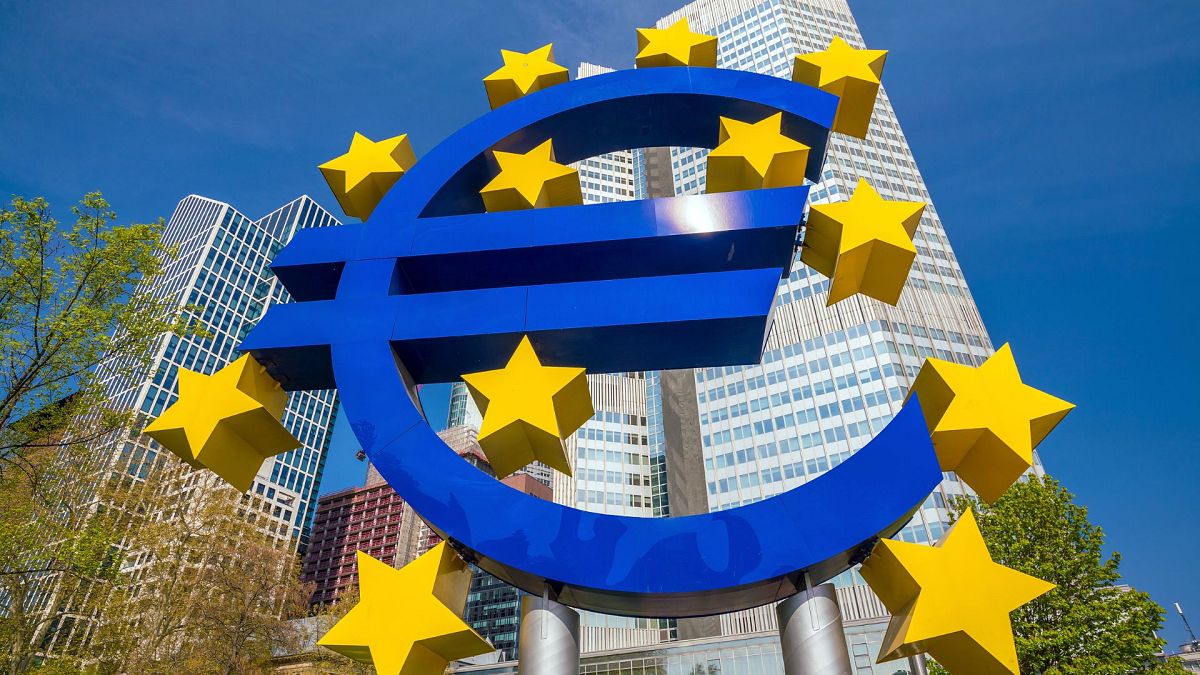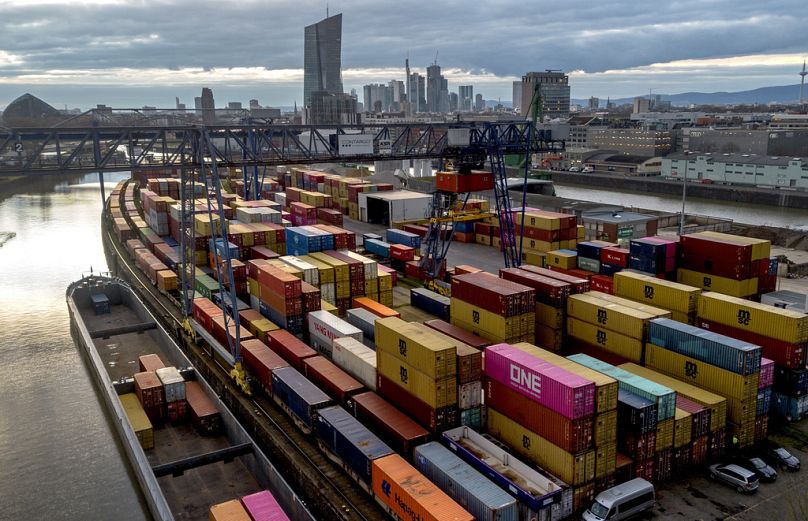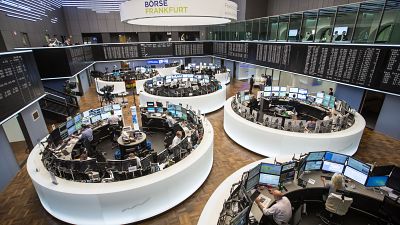The economic fortunes of the Eurozone's two titans diverge: Germany faces challenges and continues to be under pressure, while France demonstrates signs of recovery.
It's a mixed picture for the eurozone: while the manufacturing sector continues to shrink, the services sector is showing signs of improvement after six months of decline.
The latest surveys on private sector activity in the euro area, captured by the flash Purchasing Managers' Indices (PMIs) from Hamburg Commercial Bank (HCOB), also showed notable differences among the two largest economies: while Germany further deepens its economic contraction, France signs hopes of a recovery.
The index varies between 0 and 100, with a reading above 50 indicating an overall increase compared to the previous month, and below 50 an overall decrease. Simply put, a reading under 50 still shows a contraction, even if less so than before.
Eurozone shrinks but not as much as expected
Eurozone private sector activity improved slightly in February, with the HCOB's Composite PMI index climbing from 47.9 in January to 48.9.
The latest figures mark the slowest contraction in eight months and beat expectations of 48.5.
Manufacturing, however, lagged behind, with the HCOB's flash Eurozone Manufacturing PMI dipping from 46.6 to 46.1. This is lower than the expected 47 and extends the sector's decline for the eleventh consecutive month.
Conversely, the services sector ushered in a wave of optimism. The corresponding HCOB flash Eurozone Services PMI climbed to the neutral 50 mark, a leap from January's 48.4 and surpassing the 48.8 forecast.
Norman Liebke, an economist at Hamburg Commercial Bank, indicated a glimmer of hope as the eurozone inches towards recovery, particularly noticeable in the services sector.
He noted that while France is recovering more robustly in both the services and manufacturing sectors, "Germany is acting as a brake on Eurozone growth".
Yet, the European Central Bank (ECB) might find the latest PMI readings less than encouraging.
Output prices have surged, driven predominantly by the labour-intensive services sector grappling with wage inflation.
Germany: The sick man of Europe?
Indeed, the latest figures show that things are not looking good for Germany.
In February, the HCOB Flash Germany Composite PMI Output Index fell to 46.10 points from the previous 47, below the expected 47.5. This marks the eighth straight month the index has been below the 50.0 threshold, showing it continues to shrink.
The German economic momentum is hampered by a significant decline in manufacturing, with the PMI dropping to 42.3, the lowest in four months, compared to 45.5 in January and forecasts of 46.1.
Business activity also fell in the service sector, although the rate of contraction was modest and slowed from the previous month. Germany's Flash Services PMI edged higher from 47.7 to 48.2 in February, slightly beating the expected 48.
Commenting on the data, Dr Tariq Kamal Chaudhry, an economist at Hamburg Commercial Bank, said that "the German economy remains under pressure", adding that the manufacturing sector is dragging down the overall economic performance more than the services sector can compensate.
The outlook for the German economy "isn't exactly bright", he said, with warnings that Berlin needs to take action to tackle structural issues, especially with an ageing population and shifting work behaviours on the horizon.
France now in 'recovery mode'
Things look slightly rosier for the battered French economy.
The flash Composite PMI Index for France showed a notable increase from 44.6 in January to 47.7 in February. Although remaining below the 50-point threshold, meaning it's still contracting, the pace of decline was less than predicted, with economists' forecasts at 43.5.
Overall output levels fell at the slowest pace since May 2023, when the current contraction period began, aided by improved demand conditions, a rise in employment, and business confidence reaching a seven-month high.
The improvement came from both the services and manufacturing sectors. The Manufacturing PMI rose to 46.8, up from the previous 43.1, and above the expected 43.5.
The Services PMI also managed to rise from 45.4 to 48, the highest since June 2023, and above the predicted 45.6.
France's economy is "in recovery mode", according to Liebke, adding that the new orders index in manufacturing has risen by more than seven points, although it remains to be seen whether this is a one-off event or the start of a trend.
It's worth also noting that the rerouting of ships away from the Suez Canal due to attacks in the Red Sea continued to have a limited effect on France’s economy.




